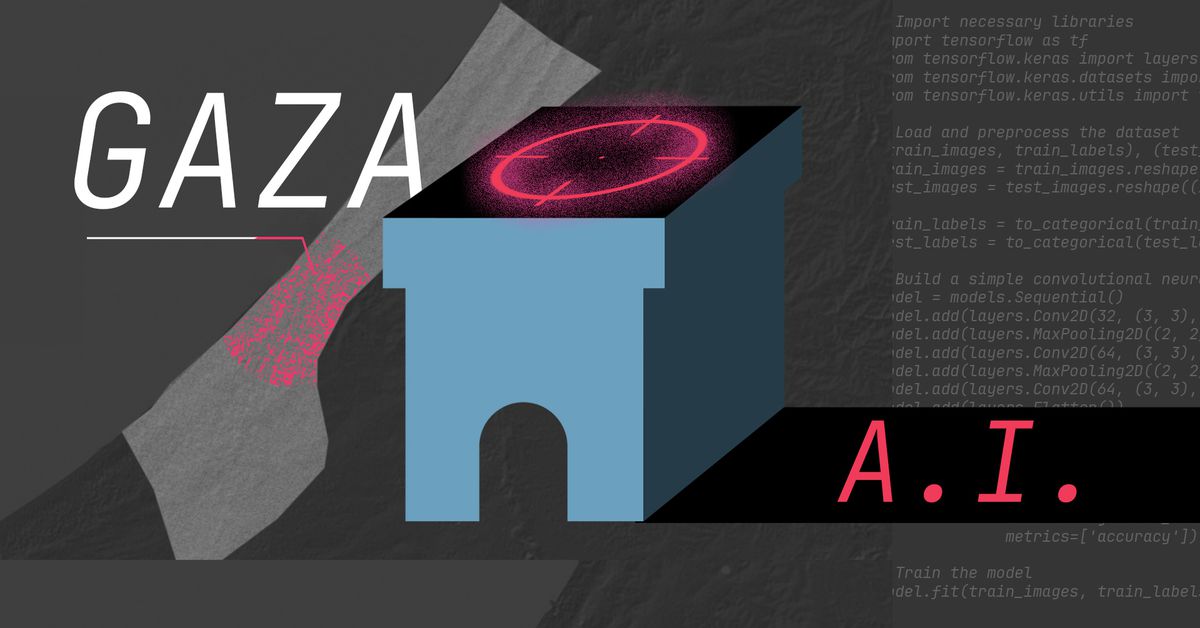How AI Aids Israeli Bombing Decisions: A Complex Ethical and Technological Landscape
The use of artificial intelligence (AI) in warfare is rapidly evolving, and Israel is at the forefront of this technological shift. While the Israeli Defense Forces (IDF) haven't publicly disclosed the full extent of AI's role in their operations, reports and expert analysis suggest AI plays a significant, albeit controversial, part in their bombing decisions. This article delves into the intricacies of this issue, exploring both the technological advancements and the profound ethical implications.
Keywords: AI in warfare, Israeli military, bombing decisions, autonomous weapons, ethical implications, AI ethics, precision strikes, military technology, IDF, artificial intelligence, algorithm bias.
AI's Role in Enhancing Precision and Speed
The IDF's commitment to minimizing civilian casualties is often cited as a justification for integrating AI into its targeting processes. AI algorithms can analyze vast amounts of data – satellite imagery, social media feeds, intelligence reports – far exceeding human capacity. This allows for:
- Improved Target Identification: AI can identify potential targets with greater accuracy, distinguishing between military assets and civilian infrastructure.
- Faster Decision-Making: The speed at which AI can process information allows for quicker responses in dynamic combat situations. This is crucial in time-sensitive operations.
- Pattern Recognition: AI excels at identifying patterns and anomalies that might elude human analysts, potentially uncovering hidden threats or revealing enemy plans.
- Simulation and War Gaming: AI can be used to model different scenarios and predict potential outcomes, aiding in strategic planning and risk assessment before any action is taken.
The Ethical Minefield: Bias, Accountability, and Autonomous Weapons
Despite the potential benefits, the use of AI in bombing decisions raises serious ethical concerns:
- Algorithmic Bias: AI algorithms are trained on data, and if that data reflects existing societal biases, the AI's decisions may perpetuate or amplify those biases, leading to disproportionate harm to certain populations.
- Accountability Gaps: Determining responsibility when AI plays a role in a bombing decision is complex. Who is held accountable for unintended consequences or civilian casualties – the programmers, the soldiers operating the system, or the AI itself?
- The Autonomous Weapons Dilemma: While current systems likely require human oversight, the potential for fully autonomous weapons systems – weapons that select and engage targets without human intervention – raises profound ethical concerns about the delegation of life-or-death decisions to machines.
Transparency and Public Discourse: A Necessary Step
The lack of transparency surrounding the IDF's use of AI in bombing decisions fuels concerns and speculation. Open and honest public discourse is crucial for addressing the ethical challenges associated with this technology. This includes:
- Independent Audits: Regular, independent audits of AI systems used in warfare are essential to ensure accountability and identify potential biases.
- International Regulations: The international community needs to develop robust regulations and guidelines to govern the development and deployment of AI in warfare.
- Public Education: Raising public awareness of the ethical implications of AI in warfare is vital for informed public debate and policymaking.
Conclusion: Navigating a Complex Future
The use of AI in Israeli bombing decisions presents a complex interplay between technological advancement and ethical responsibility. While AI offers the potential for increased precision and efficiency, it also raises crucial questions about bias, accountability, and the potential for autonomous weapons. Open dialogue, independent oversight, and international cooperation are essential to navigate this complex future responsibly and ethically. Further research and debate are needed to ensure that AI is used responsibly and in a way that minimizes harm and upholds human rights.
(Note: This article is for informational purposes only and does not endorse or condemn any specific military actions or policies.)
